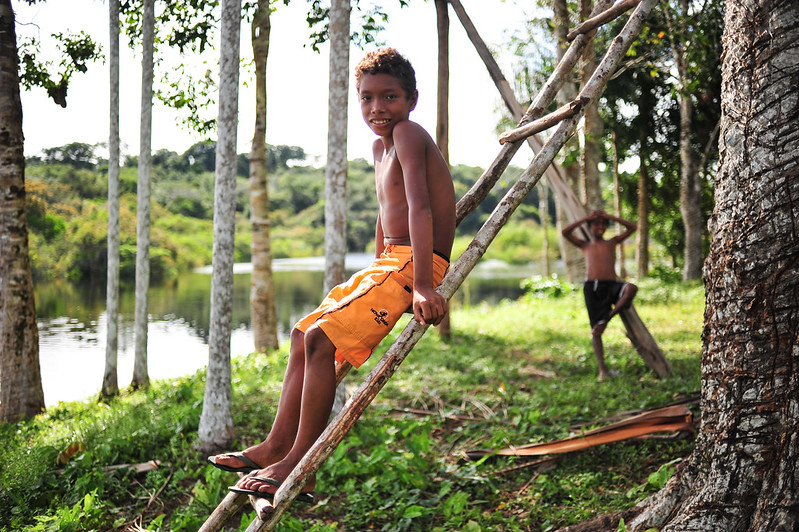Health Care Access: Telemedicine in the Amazon
 Telemedicine in the Amazon opens new doors for remote communities and could be revolutionary for Indigenous people worldwide. The Amazon Rainforest is home to millions, including Indigenous communities and remote populations, who face significant challenges in accessing primary health care. The region’s dense vegetation, vast rivers and lack of infrastructure make traditional health care delivery nearly impossible.
Telemedicine in the Amazon opens new doors for remote communities and could be revolutionary for Indigenous people worldwide. The Amazon Rainforest is home to millions, including Indigenous communities and remote populations, who face significant challenges in accessing primary health care. The region’s dense vegetation, vast rivers and lack of infrastructure make traditional health care delivery nearly impossible.
However, telemedicine has begun to bridge this gap, offering a lifeline to those who would otherwise be left without critical medical care. Telemedicine allows doctors to connect with patients through video calls and online platforms, offering medical care from a distance. This approach is especially beneficial for people in remote areas, allowing them access to health care, receiving diagnoses and managing treatments.
Health Care Vulnerabilities in the Amazon
The Amazon Rainforest is home to diverse Indigenous populations living in remote areas without access to essential health services. The region faces various health issues, including infectious diseases, malnutrition and chronic conditions. Common diseases like malaria and respiratory infections are widespread and the lack of proper health care worsens these conditions.
The infant mortality rate among male Indigenous infants is 27 per 1,000 live births, significantly higher than the urban male average of 13 per 1,000. Most of the data mirrors this one, with a significant difference between the groups, even getting up to double.
Innovative Telemedicine Projects in the Amazon
The Amazon Hope Project is a nonprofit organization that provides essential health care services to remote communities along the Amazon River using mobile clinics. These floating medical units are equipped with telemedicine technology, allowing health care providers to consult with specialists in larger cities.
The project offers various services that may not be available locally, including maternal care, vaccinations and chronic disease management. In addition to addressing immediate health needs, the project emphasizes preventive care through health education and routine check-ups. The Amazon Hope Project collaborates with local churches in Brazil to help deliver these services and resources.
Partnerships
The success of telemedicine in the Amazon depends greatly on technological advancements. Satellite internet is essential for connecting remote areas that lack traditional telecommunications infrastructure. Vivo, the leading telecommunications provider in Brazil, has partnered with the Brazilian government to extend mobile network coverage and boost internet connectivity in remote regions.
This infrastructure development supports telemedicine platforms, enabling remote health consultations and efficient data sharing between local clinics and urban specialists. The combined efforts of these sectors have effectively addressed the challenges of providing health care in isolated areas, illustrating the success of their joint approach in bridging the health care gap.
Economic and Social Impact
The impact of telemedicine on health care access in the Amazon goes beyond medical outcomes. Economically, it reduces the financial burden on patients who would otherwise incur high costs traveling to urban centers for care. Socially, telemedicine improves health literacy and empowers local health workers with the tools and knowledge needed to manage complex cases.
Conclusion
Telemedicine is transforming health care in the remote Amazon Rainforest by overcoming geographical barriers and delivering essential services to isolated communities. With technological advancements and strong partnerships, these initiatives make a tangible difference, improve health outcomes and support sustainable development. The ongoing success of telemedicine projects highlights its critical role in bridging the health care gap. It offers hope for a future where every individual can access quality care regardless of location. As these solutions grow, they support Amazon communities, leading to better health outcomes and a more promising future.
– Danica Lourdu Nelson
Danica is based in Parker, CO, USA and focuses on Business and Technology for The Borgen Project.
Photo: Flickr
